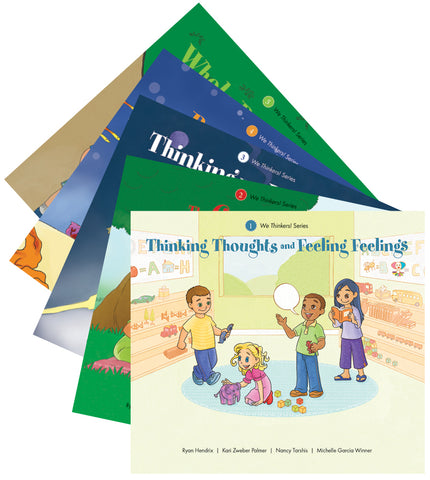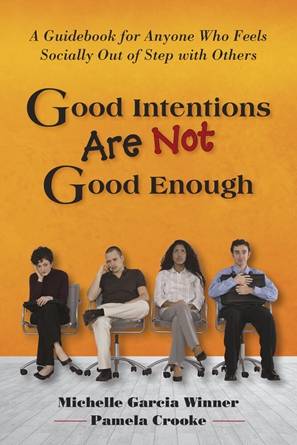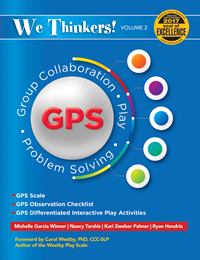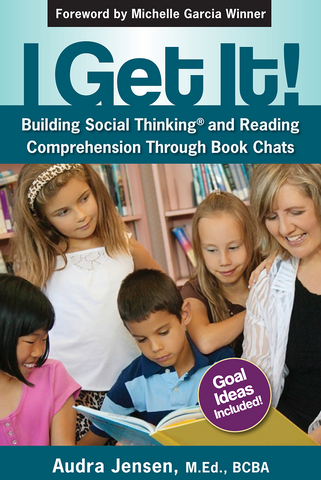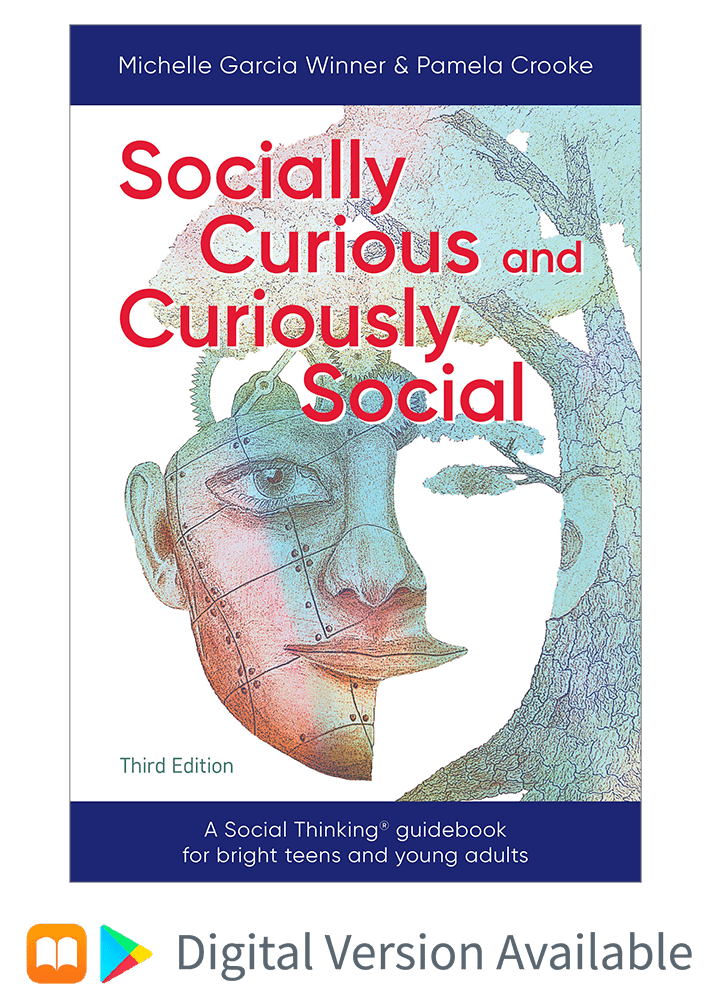
Socially Curious and Curiously Social: A Social Thinking Guidebook for Bright Teens & Young Adults
New edition! All-new language, content, and book cover design featuring artwork by a Neurodivergent artist!
A multiple award winner, this detailed guidebook was developed with the input of Neurodivergent teens and young adults as a way to help sail the stormy seas of dating, texting, lies, and everyday relationships. Targeted strategies encourage readers to better navigate their social worlds, develop stronger social competencies, and manage social anxiety. This book gets rave reviews from adolescent and young adult readers! Parents, educators, and therapists also appreciate how it better equips them to explain how the social world works using real-life teen situations.
What’s new in this 3rd edition
- All-new cover design featuring artwork by a Neurodivergent artist
- Refreshed and modernized book design
- Updated language and terms
- Revised Chapter 12: Hanging Out, Hooking Up—What’s Social Thinking Got to Do with It?
Content Highlights
- How does social anxiety mess with a healthy head? Visual strategies and related explanation to help kids explore anxiety management after they have increased their social competencies. Easy to use but based on cognitive behavioral practice.
- Visual tool to talk about the Spirals of Social Success and Social Failure.
- Friendship is so complicated! Use the visual Friendship Pyramid—ranging from casual greeting to bonded and close friends—to teach about this tricky social phenomenon.
- Anime-style illustrations to teach the social emotional chain reaction in a visual and engaging way.
Why this award winner is a "breakthrough"
This guidebook is written in the language of teens, as a “get real” discussion about what really goes on inside the minds of people when we share space together. Adults also use the book while working with students to learn about, discuss, and unravel the social emotional world of teens and young adults.
Many practical strategies help the reader figure out the roles of making impressions, thoughts and feelings, friendships, and how their own actions and emotions play a role in the give and take of the social world. Who doesn’t think they could improve in these skills and improve their casual to more complex relationships?
From discussing the “ins and outs” of what it means to be a “Social Thinker,” to figuring out texting, dating, the many different levels of friendship, and the many and varied emotions we experience as we relate to others, the authors describe the real world of being with other people. This includes knowing how to use the “social flip” (or social fake) to show interest or stay connected, even when bored! The authors developed this book with the input and feedback from Neurodivergent teens and young adults who shared their stories and gave critical feedback. Their input has helped thousands of others learn about the social world in a unique and motivating way.
Parents, teachers, counselors, other caregivers, and even siblings may also find this book compelling, as it provides some “aha!” moments that encourage a deeper discussion about the social world. While we all work on improving our communication skills, few of us know how to talk about the social mind and how to cope in our very social world of the classroom, hanging out, holding a job, chatting on the Internet, texting, and whatever the future holds.
Digital version must be purchased separately—only on Apple Books and Google Play (not printable).
